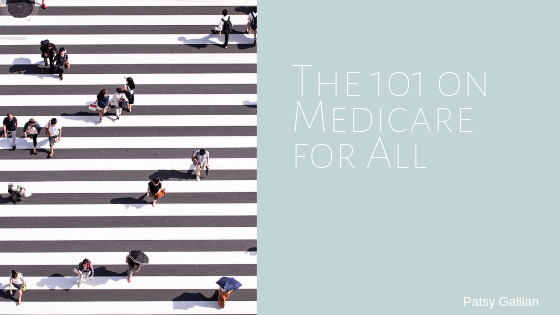Healthcare has become quite the hot topic over the past few years with millions of advocates for a universal healthcare model standing up to fight for better coverage with fewer costs. One such model is Bernie Sanders’ Medicare for All plan. Arguing that since many healthcare options are offered through employers, finding adequate and affordable coverage proves difficult for the millions of Americans who are unemployed, self-employed, stay-at-home parents, or new business owners.
Health is a priority, and Sander’s plan presents a way to provide great healthcare to all, regardless of age or socioeconomic status, while strengthening the healthcare system as a whole by providing enhanced training and lowering overheads and administrative costs. Sounds great, but how might it work?
Medicare for All and You
This plan would allow you to see whichever provider you prefer without worrying about out-of-pocket costs or whether they’re in your network. Medicare for All would work without copays or deductibles which, according to Bernie Sanders, would end up saving middle-class families an average of $5,800 a year. The plan eliminates private insurance companies, instead the government would operate as a singular, public insurance provider, eliminating the days of stressing over claims, deductibles, and copays.
Benefits of Medicare for All
Like traditional healthcare plans, Medicare for All would cover an extensive range of healthcare services and products. The plan would offer coverage for inpatient and outpatient services, primary and specialty care (including palliative and long-term), vision, hearing, and oral health care, as well as mental health and addiction services. Also included in coverage are prescriptions, diagnostic tests, and medical equipment and supplies.
Securing the Funds
Medicare for All would shift the current payment structure to a simpler and more streamlined version since there would be one singular public insurance system. Eliminating private providers and streamlining the payment structure poses to reduce America’s healthcare spending by $6 trillion dollars over a ten year period.
Costing approximately $1.38 trillion per year, the plan would be funded by a structure of tax premiums and deductions, including $110 billion from progressive income tax rates for yearly household earnings exceeding $250,000 and $630 billion from employers who will pay a 6.2 percent income-based premium. The plan promises that Medicare for All is feasible without adversely impacting the country’s economy or the budgets of its citizens.
Adequate and affordable healthcare should not be a privilege, it is a human right. Though there is opposition to Medicare for All, as well as all universal healthcare models, it is clear that the healthcare system in the United States needs an overhaul. Plans such as this one have their kinks to work out, but are ultimately leading the country towards a healthier future.
